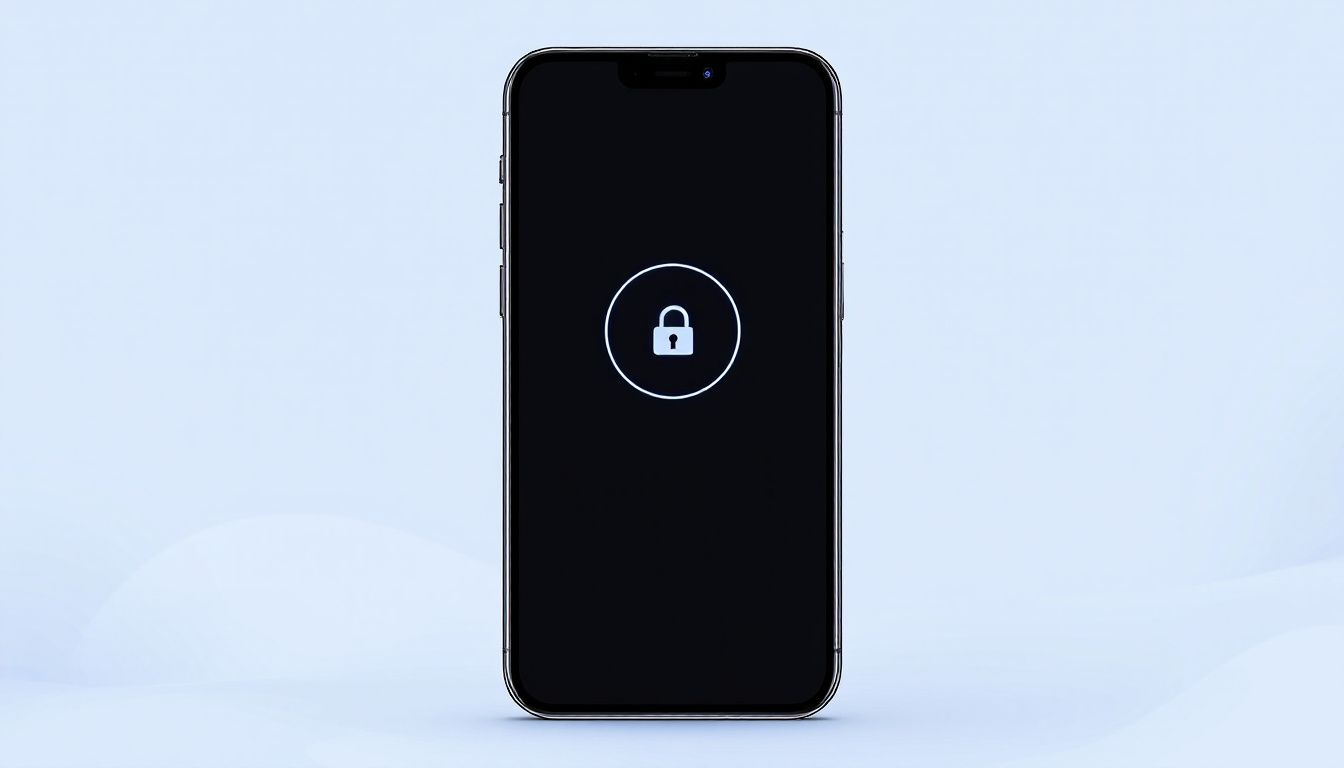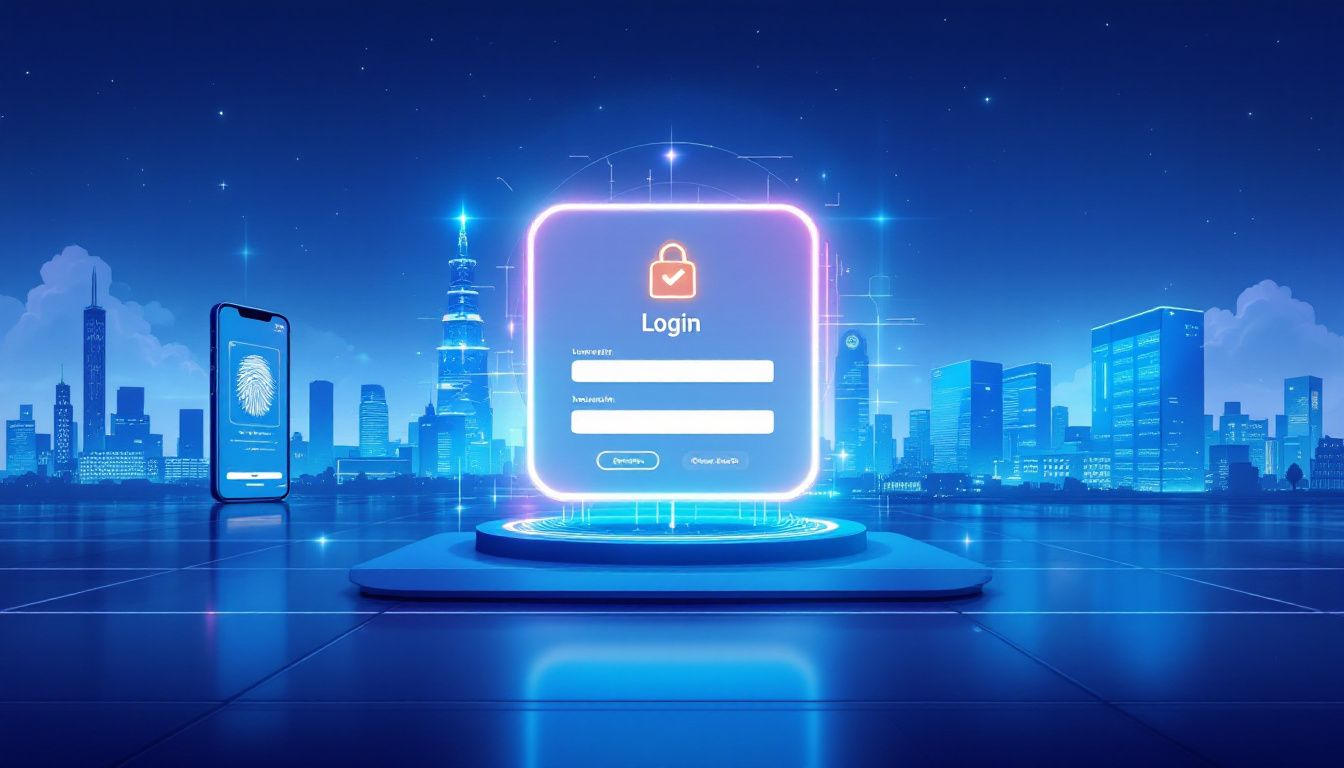Securing Your Phone: The 7 Best Tips for Optimal Safety

Securing your phone is crucial to protect your data from theft and hacking. Learn the best tips in this article and keep your smartphone safe.
Always Lock Your Device
Locking your smartphone is the first and most important step to prevent unauthorized access to your photos, contacts, and messages. By securing your mobile device, you deny criminals the chance to steal personal information.
Biometric locking methods like Face ID and fingerprints provide an extra layer of security and make it easier to use a complex password without needing to enter it frequently. These methods are not only safer but also more user-friendly, making unlocking your device quick and easy.
Choose the Right Type of Screen Lock
When securing your smartphone, choosing the right type of screen lock is crucial. Biometric methods like face scan and fingerprint scan offer a high level of security and convenience. Facial recognition technology uses 3D depth recognition, making it harder for intruders to bypass your lock.
Another option is pattern lock, which can be made more secure with the ‘invisible pattern’ option. This makes it harder for others to observe your unlock pattern. Ensure you choose a screen lock that suits you and optimally protects your mobile device.
Set a Strong PIN Code
A strong PIN code is essential to secure your mobile phone. Avoid predictable codes like 1234 or your birthdate, as these are easy to guess. Instead, choose a unique security code that is hard to crack.
A 6-digit PIN code offers better security than a 4-digit one. By using a strong password or a longer PIN code, you make it harder for unauthorized users to access your device and personal data.
Keep Your Software Up-to-Date
Regular software updates are crucial for the security of your mobile device. Updates often include security patches that address vulnerabilities that hackers could exploit. By keeping your software up-to-date, you not only improve security but also enhance the functionality and compatibility of your device.
Downloading apps from official stores reduces the risk of installing malicious software. These apps are vetted for malware, contributing to the safety of your device.
Enable Automatic Updates
Enabling automatic updates ensures your device receives the latest security patches without requiring manual checks.
For Android devices, you can enable automatic updates via the Play Store app by going to settings and selecting ‘Auto-update apps,’ preferably over WiFi.
For iPhones, you can enable automatic updates by going to ‘Settings,’ selecting ‘iTunes Store and App Store,’ and toggling the ‘Updates’ slider to the right. This keeps your device up-to-date and better protected against potential security risks.
Use Two-Factor Authentication
Two-factor authentication is an additional security check required to access apps and accounts. This method adds an extra layer of security, even if your password is stolen. It makes it harder for attackers to gain unauthorized access to your personal information.
Many popular platforms like Google and Facebook implement two-factor authentication to better secure accounts. By enabling this extra step, you ensure your accounts are better protected against potential cyberattacks.
Be Cautious with Public WiFi Networks
Public WiFi networks are popular for their easy accessibility, but they are not always secure. These networks are often vulnerable to eavesdropping, where attackers can intercept network traffic and steal personal data.
Hackers can easily access data transmitted over public WiFi networks. Therefore, it’s important to be cautious and take measures to secure your mobile device when connecting to public WiFi.
Use a VPN
A VPN (Virtual Private Network) secures your internet connection by encrypting your data, making it harder for third parties to access your information. By using a VPN, you create a secure ‘tunnel’ for your online activities, which is essential for your privacy.
When using public WiFi networks, the risk of data leaks is high, making a VPN essential for extra security. By encrypting your data, you ensure your mobile device is better protected against potential cyberattacks.
Download Apps Only from Official Stores
Downloading apps from official stores like the Google Play Store and the App Store is essential to avoid malware and viruses. These stores vet apps for malicious software, contributing to the safety of your device.
Pay attention to the permissions apps request for access to personal data when downloading them. This helps prevent unauthorized access to your mobile device.
Regularly Back Up Your Data
Making regular backups of your smartphone is essential to prevent data loss. These backups help secure important data and make it easy to restore in case of issues.
Additionally, regular backups protect your data from loss due to damage or theft of your smartphone. It’s important to back up your data to keep it safe.
Protect Your SIM Card
A good way to protect your SIM card is by setting a PIN code, which prevents unauthorized access to your data. Setting a complex PIN code for your SIM card makes it harder for unauthorized users to gain access.
It’s crucial to protect your SIM card from unauthorized access, as otherwise, unauthorized users could access your personal data and accounts.
Conclusion
Securing your phone is crucial to protect your personal information. By always locking your device, keeping your software up-to-date, using two-factor authentication, and being cautious with public WiFi networks, you can significantly enhance the security of your mobile device.
Additionally, it’s important to download apps only from official stores, regularly back up your data, and protect your SIM card. By following these tips, you make your phone safer and protect yourself against potential cyberattacks. Be proactive and take the necessary measures to secure your mobile phone.
Victim of fraud? Contact the fraud help desk.
Frequently asked questions
A quick way to explore how everything works and what to expect.
You can best secure your phone by setting a passcode and regularly updating both the operating system and apps. This keeps your device safe and up-to-date.
It’s crucial to always lock your device to prevent unauthorized access to your personal information, such as photos and messages. This protects both your privacy and the security of your data.
Two-factor authentication is a critical security measure that requires an additional verification step beyond your password, making your accounts more secure against unauthorized access. It significantly enhances security and helps keep your personal data safe.

 Netherlands
Netherlands Belgium
Belgium Denmark
Denmark Germany
Germany France
France Switzerland
Switzerland Austria
Austria UK
UK Spain
Spain Italy
Italy


